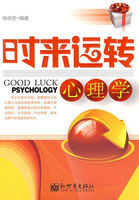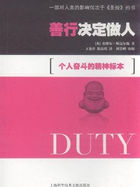Good afternoon Ladies and Gentlemen, I am delighted to be back at Harvard.
The last time, we discussed whether the US and Europe, Mars and Venus, could be reconciled. The answer today is even more obvious than it was then. But we have new issues to grapple with and a new geo-political landscape. Again the question is what the US and Europe can and should do together.
Before we get to that, let me assess the changed context. Ours is a world in flux. One where everything is speeding up: politically, economically and technologically. The net result is growing complexity. There is no single narrative or template to guide us. Chaos and hypermodernity live side by side. Integration and disintegration co-exist. No wonder many of our citizens feel confused, even lost.
Against this background, we need to be flexible and principled at the same time. For our core values have not changed. Nor has our determination to preserve them at home and support them abroad.
What is really changing the world is globalisation. It is leading to deeper interdependence and, probably, to multi-polarity.
Globalisation is good. And anyway pretty much unstoppable. It spreads prosperity and makes us richer culturally. It brings people together across continents. Of course, it has a dark side too. It makes us more vulnerable to shocks and has brought new problems in its wake. It needs a human face.
Globalisation is our child, the child of our ideas. But we can no longer run the world as we used to. We have to adjust. It means new powers are rising while older ones are playing new roles. The financial crisis has shrunk the timeline. The need to reposition ourselves is not a challenge for the medium- term. It is an issue for today.
In all this, there is a paradox. In previous times, if you won a political or ideological battle, you could expect more influence. This time, our intellectual and political victory requires us to share the leadership of the world with others. Our success at spreading markets, open societies and the desire for people to shape their own lives, means less power for ourselves.
This adjustment should be embraced, not resisted. To manage this globalised world, you need two things:
First, well-run states. Weak states are a nightmare for those livingin them but also a problem for the rest of us. This brings me to the first big problem: creating well-run states requires functioning politics. And this is something that foreigners cannot provide; only the locals can. We can help. But it is ultimately their responsibility. At the same time, their failures rebound on us. This is the core dilemma for diplomacy in our democratic age.
Second, effective global governance. Maybe an awful term but a vital concept. Through effective global governance, we should avoid the risk of a world of multi-polarity without multilateralism.
But here is the second problem: economics and security are global, whereas politics, and people’s loyalties, remain local.
The problem of collective action was meant to be solved through international rules and institutions. But this post-1945 international system is under pressure. Both in terms of effectiveness and legitimacy. This is partly because we have new problems without institutions, such as migration. Or because problems fall between institutions, like the financial crisis.
It is also because the nature of power itself is changing. Power has shifted from governments to markets, NGOs, the media. These days, if you want to tackle international problems, negotiations among diplomats and other government officials are seldom enough. But the main reason is the power shift, roughly speaking from the West to emerging countries.
If people are to contribute to the solution, they have to help shape the strategy. The old maxim of“nothing about us, without us”has resonance. It is therefore logical that we talk so much about reforming the“Gs”: G8, G8 plus 5, G 20. But also the UN Security Council; or IMF voting weights and so on.
In short, the consequence of the double power shift is that we need to mobilise wide coalitions and bring everyone on board. But the question arises: Who is responsible for what? Who defines the strategy? How do you avoidfree-riding behaviour? This requires trust which in turn is done through agreed rules and good politics.
The European Union itself is a good example. It started as a peace project among Europeans. Through enlargement we spread the zone of peace and stability. A big task for today and the future is to contribute to promoting peace and functioning politics around the world.
It is 10 years since we started doing foreign and security policy in the European Union in a more serious way. Not everything is perfect. But we are making a difference where it matters. We are promoting peace and protecting the vulnerable in the Balkans, Africa, the Middle East and elsewhere. More than 70,000 people, from soldiers to policemen to rule of law experts, have been deployed in more than 20 crisis management operations.
These missions are important. They save lives. They bring stability. But they are also an expression of Europe‘s ambitions and identity. We do crisis management the European way. With a comprehensive approach. In support of international law and agreements. And in close co-operation with partners such as the UN, NATO, the African Union and others.
Of course, by far our most important international partner is the United States. President Obama has set a new direction for US foreign policy. This has been welcomed around the world. And in Europe, in particular. The reasons are obvious. Europeans welcome his inclusive leadership; the genuine consultations; his principled pragmatism.
New policy lines have been defined. On the Middle East including Iran; on Afghanistan-Pakistan or on Guantanamo, or today’s important statement on missile defence. There is also a greater orientation on Asia, and China in particular. This is not entirely new, but the trend has become clearer. This too is a consequence of the power shift.















